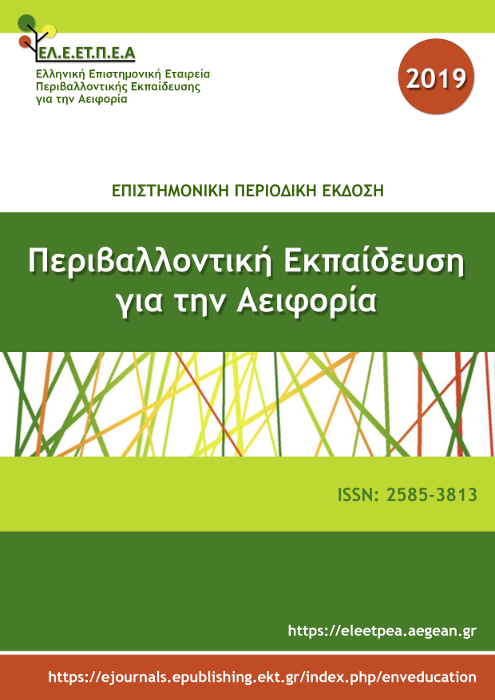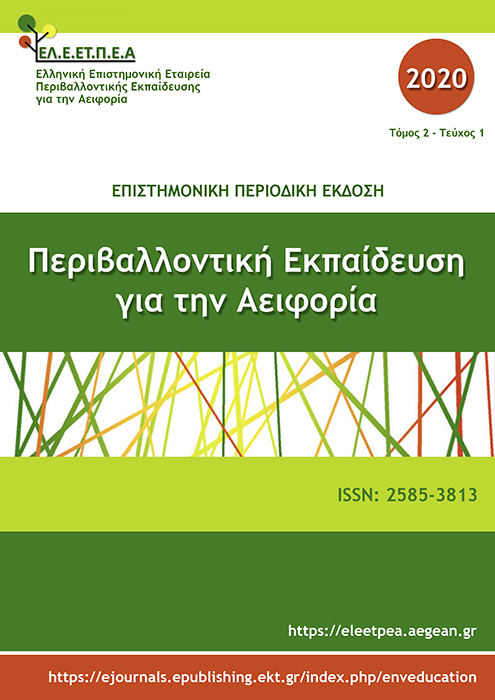Η ελληνική εκπαιδευτική πολιτική για τη μετάβαση από την Περιβαλλοντική Εκπαίδευση στην Εκπαίδευση για την Αειφόρο Ανάπτυξη
Abstract
Article Details
- How to Cite
-
Τίγκας Ι., & Φλογαΐτη Ε. (2019). Η ελληνική εκπαιδευτική πολιτική για τη μετάβαση από την Περιβαλλοντική Εκπαίδευση στην Εκπαίδευση για την Αειφόρο Ανάπτυξη. Environmental Education for Sustainability, 1(1), 44–58. https://doi.org/10.12681/ees.19550
- Section
- Articles

This work is licensed under a Creative Commons Attribution 4.0 International License.
Authors retain copyright and grant the journal right of first publication with the work simultaneously licensed under a CC-BY-NC-SA that allows others to share the work with an acknowledgement of the work's authorship and initial publication in this journal.



